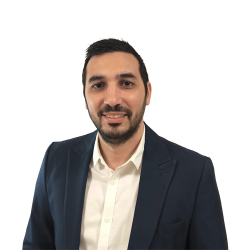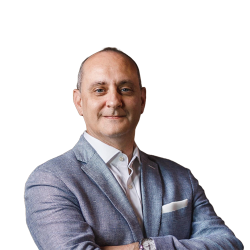

Globally, the ageing population is increasing at an unprecedented rate. According to the World Health Organization (WHO), the number of people aged 60 years and older will double by 2050, reaching approximately 2.1 billion. This demographic shift is primarily driven by declining fertility rates and improvements in healthcare, which have led to increased life expectancy.
The ageing population has profound economic implications. As the proportion of elderly individuals grows, the dependency ratio increases, meaning fewer working-age people support more retirees. This can strain public pension systems and social security funds. The International Monetary Fund (IMF) highlights that in many advanced economies, public pension expenditures are projected to rise by an average of 1.5 percentage points of GDP by 2050.
Moreover, the ageing population can lead to labor shortages, impacting productivity and economic growth. Businesses may face challenges in finding skilled workers, while governments may need to increase immigration or extend working lives through policy reforms to mitigate these effects.
The Challenges and Impact
Healthcare systems must adapt to meet the needs of an ageing population. Older adults often have complex health conditions requiring comprehensive care. Chronic diseases like cardiovascular conditions, diabetes, and dementia are more prevalent in older age, demanding increased healthcare resources and specialised services. The WHO emphasises integrated care systems to improve health outcomes and quality of life for older adults.
The ageing population also has significant social and cultural impacts. Older individuals contribute through volunteer work, caregiving, and sharing knowledge, but ageism can marginalize them. Initiatives promoting inclusion and intergenerational interactions are crucial to changing perceptions about ageing and enhancing social cohesion.
The Situation in Malta
Malta is experiencing similar demographic trends, with a growing proportion of its population aged 65 and over. According to Eurostat, in 2021, about 20% of Malta’s population was aged 65 and above, and this figure is expected to rise in the coming decades.
For Malta, the economic implications of an ageing population are significant. To ensure sustainability, Malta has implemented pension reforms aimed to balance the financial sustainability of the pension system.
Malta’s healthcare system is also adapting to meet the needs of an ageing population. The government has invested in healthcare infrastructure and services tailored to older adults, such as geriatric care facilities and community-based care programs. Additionally, Malta is focusing on preventive healthcare to reduce the burden of chronic diseases among its elderly population.
Socially, Malta values the contributions of its elderly population and promotes their active involvement in society. Various initiatives, such as lifelong learning programs and senior community centers, are designed to enhance the social inclusion and well-being of older adults. These programs provide opportunities for continuous personal development and social engagement, helping to combat isolation and loneliness among the elderly.
Impact on Care Homes
Whilst efforts are being made help senior citizens live as independently as possible in their own home, the increasing ageing population significantly impacts care homes and long-term care facilities. These institutions are essential for providing specialized care and support to older adults who can no longer live independently. As demand for these services grows, care homes face several challenges:
Technological Integration
To address these challenges, care homes must remain ahead of the curve by integrating advanced technologies. Technologies such as Residential Care Management Systems (RCMS), telemedicine, and assistive devices can greatly enhance the efficiency and quality of care provided in these facilities.
In conclusion, the ageing population is a global phenomenon with significant implications for economies, healthcare systems, and societies. Countries like Malta are proactively addressing these challenges through policy reforms, healthcare innovations, and social inclusion initiatives. By embracing the opportunities presented by an ageing population and integrating advanced technologies in care homes, societies can ensure older adults lead fulfilling and productive lives.
HLL plays a crucial role in addressing these challenges, providing advanced systems like REVO, Clinitouch, MOTO Tiles, and the ZPT Nurse Call System. These solutions streamline care management, enhance operational efficiency, and improve patient outcomes. Through comprehensive training and continuous support, Healthcare Logistics Ltd. helps care facilities adapt to the evolving needs of an ageing population, fostering an environment where older adults can thrive.
References
World Health Organization (WHO). “Ageing and Health.”
International Monetary Fund (IMF). “The Future of Public Pension Systems.”
Eurostat. “Ageing Europe — 2021 edition.”
Government of Malta. “Pension Reform.”
Ministry for Health, Malta. “Health Strategy.”
Active Ageing and Community Care, Malta. “Programs for the Elderly.”

Executive Manager
Fabian is an IT professional with over 15 years of experience in operations, leadership, and customer support. With a passion for emerging technologies, he is always exploring innovative solutions that drive efficiency and deliver results. Throughout his career, Fabian has built a reputation for being the go-to person for ensuring everything stays on track – from team coordination to project delivery and all the fine details in between.
Known for his clear communication and unwavering focus on efficiency, in his Executive Manager role he collaborates closely with cross-functional teams to ensure projects are completed on time, within scope and to the highest standards. His target-driven approach ensures that both client goals and organisational objectives are always met.
Outside of his professional life, Fabian has a wide range of hobbies, including cooking, painting miniatures, gardening, video games, and football – though, like many, he often finds there’s never enough time to pursue them all.

Business Development and REVO Product Manager
Clara studied computing and business at the University of Malta, where she focused her thesis on the healthcare sector – a long-time interest. With nearly nine years of experience, Clara has helped clients successfully implement and support their projects, while also working in business development.
As the Product Manager for REVO, Clara drives strategy and development, ensuring HLL’s flagship product evolves to meet user needs. With a blend of technical know-how and business insight, she is passionate about creating impactful solutions.
Outside of work, Clara has a love for sports, sparked by playing basketball growing up, and enjoys traveling, soaking up the sun at the beach, and spending time with family.

Chief Executive Officer
Arthur is a seasoned leader with over 25 years of experience in IT and management. For the past two decades his focus was on transforming the health and care sectors through technology.
Before joining HLL, he held the position of Chief Information Officer at both the Ministry for Health and the Ministry for Social Policy, where he led major national IT initiatives and was involved in various international projects.
As Chief Executive Officer, Arthur leads a passionate team that designs and delivers innovative, reliable IT solutions for organisations in the health and care space. His strong commitment to quality and innovation continues to shape HLL’s vision.
Outside of work, Arthur enjoys exploring new places, watching documentaries, and above all, geeking out over the latest tech. If there’s a tech-based solution to be found, rest assured he’s already on it.

Director and Founder
As Managing Director and Founder of HLL, Ian has over 35 years of experience in the information technology and services industry. Throughout his career, he has gained extensive experience and played a key role in establishing companies focused on IT hardware, consultancy, and support.
Ian firmly believes that a strong commitment to customer satisfaction and delivering real value is key to success. This philosophy has consistently driven business growth, as satisfied clients are the best form of promotion.
In his free time, Ian enjoys watching football, summer BBQs, traveling, and (over)indulging in good food.